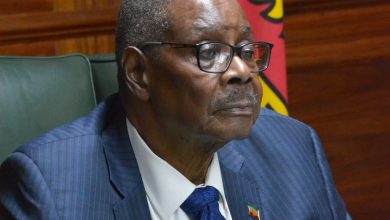Malawi slammed over human trafficking failures
Malawi is still failing to protect victims and punish perpetrators of human trafficking, despite tripling its anti-trafficking budget and introducing judicial tools, a new US report has revealed.
The 2025 Trafficking in Persons Report by the US Department of State warns that corruption, official complicity, weak prosecutions, and misidentification of victims continue to undermine Malawi’s anti-trafficking progress.

While acknowledging measurable strides, the report notes that Malawi still falls short of global standards for victim protection and justice delivery, with systemic weaknesses hampering the country’s fight against trafficking.
The report places Malawi on Tier 2, meaning the country does not fully meet minimum standards for eliminating trafficking but is making significant efforts to achieve compliance.
Positively, the report observes that the government tripled its anti-trafficking budget, launched a national communication strategy, improved victim referrals, trained judges with sentencing guidelines, and expanded awareness campaigns nationwide.
“Malawi remained on Tier 2 because of overall increasing efforts and some promising reforms, but serious gaps and systemic problems continue to undermine the fight against trafficking,” it states.
However, statistics reveal troubling setbacks as authorities investigated only 16 trafficking cases in 2024 compared to 43 in 2023, while prosecutions fell from 80 to 19 and convictions dropped to four.
Courts acquitted seven suspects and dismissed several cases after victims declined to testify, with prosecutors citing shortages of fuel, vehicles, and personnel that left many cases unresolved, according to the report dated September 2025.
The report also highlights widespread domestic trafficking with children exploited in farming, fishing, domestic servitude, begging, commercial sex, and early marriage, while Malawians abroad remain vulnerable in Zambia, South Africa, Oman, Iraq, and Saudi Arabia.
The State Department has since urged Malawi to strengthen victim screening, prosecute complicit officials, enforce labor regulations, and ensure victims are not punished for crimes committed under coercion.
It further recommended improved coordination at district level and expanded court support for survivors to guarantee access to justice and adequate protection during lengthy legal proceedings.
Secretary for Homeland Security Steven Kayuni said the government was already pursuing anti-trafficking initiatives and welcomed the report as an opportunity for reflection and service improvement.
“These are coordinated efforts of varied law enforcement agencies, such reports are welcome as they help with introspection on how to render public service better,” said Kayuni.
Centre for Human Rights and Rehabilitation executive director Michael Kaiyatsa said Malawi still lacks a victim-centered approach to protection and rehabilitation despite the presence of legal frameworks such as the Trafficking in Persons Act.
“Implementation of the law is inconsistent and severely under-resourced, particularly in providing survivors with psychosocial care, legal aid, and reintegration support,” Kaiyatsa said.
He added that rural survivors often return to vulnerable conditions due to limited shelters and reintegration programmes, leaving them exposed to repeat exploitation.
Kaiyatsa also criticized the trafficking fund is underfunded and opaque, noting that allocations and disbursements to frontline agencies remain unclear, leaving police and social welfare officers with minimal support.
He emphasized that combating trafficking requires strong leadership, adequate funding, and effective coordination, yet Malawi’s current efforts remain fragmented, reactive, underfunded, and undermined by weak inter-agency cooperation.





